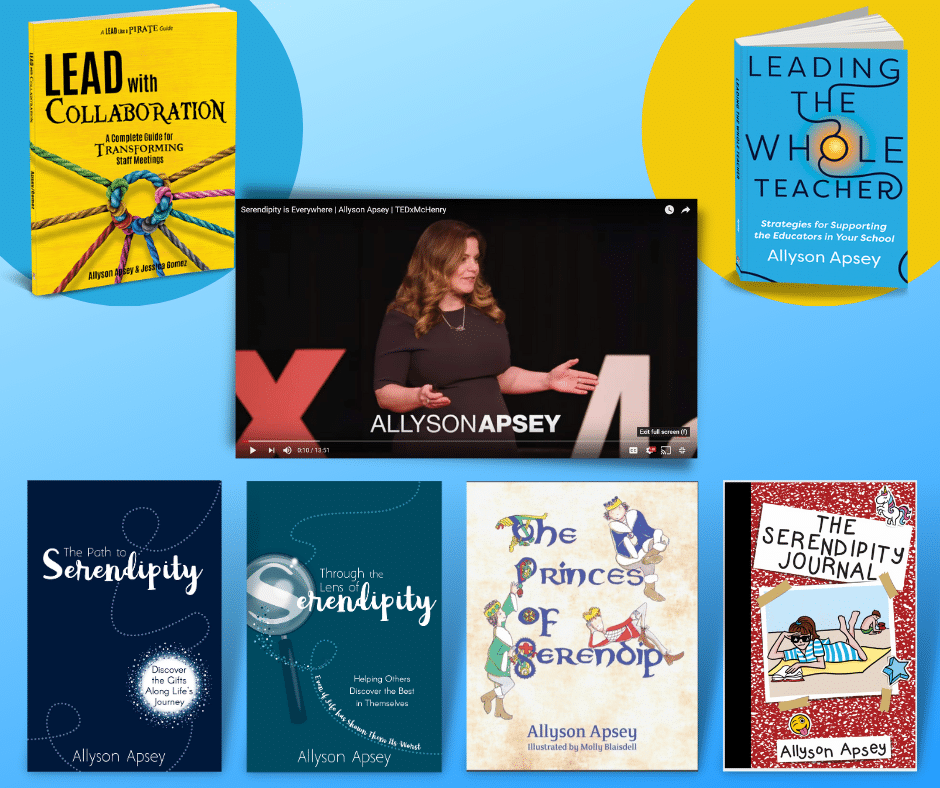One of the most powerful questions to ask a new teacher is, “Where do you feel valued in your work at school?” In schools where new teachers are wrapped in support and encouragement, and recognized for their strengths, they are able to rattle off many areas where they feel valued and seen. Unfortunately, this question brings tears to the eyes of some new teachers because their mentors are sources of emotional drain rather than emotional energy, and they feel like the feedback they are getting is all negative.
The thing that gets me is the pendulum swing of experiences we provide new teachers. On one hand, we leave new teachers to fend for themselves unless there is an issue, and then we are all over them about not completing lesson plans in the correct format without knowing that they are crying on their way home every day because of student behavior issues in their classrooms. On the other hand, with a well-designed induction and mentoring program, we are providing new teachers with constant feedback that highlights their strengths and next steps, and modeling the resilience and positive energy needed to be an effective teacher. All new teachers deserve support that helps them develop their instructional, management and relational skills while helping them find a deep level of satisfaction in their work. They chose the teaching profession because they want to make a difference in the lives of students, and we need to help them see where they are already making that difference and support a desire to continuously improve.
Want some good news? The 2nd Annual Merrimack College Teacher Survey from January 2023 indicates that teacher morale is on the rise. In 2022, 56% of surveyed teachers said they are somewhat satisfied or very satisfied with their jobs. In 2023, the percent of teachers who are somewhat or very satisfied grew to 66%. The report sites, “Some of the biggest increases in job satisfaction occurred among newer, younger teachers; secondary teachers; and teachers in majority-Hispanic schools.” In the comments that accompanied the survey, teachers said that taking their health into their own hands by doing things like accessing therapy, exercising, and starting a staff wellness committee has contributed to their job satisfaction. They also said supportive administration and autonomy in their classrooms are reasons for their increased satisfaction.
While increased job satisfaction is a step in the right direction, we cannot ignore that 66% of teachers somewhat or very satisfied in their jobs according to the survey means that 34% of teachers are dissatisfied with their jobs. Some of those dissatisfied teachers have a high level of skill in the classroom and may be chosen as a mentor for a new teacher, which is a scary scenario for the future of our profession. We have to look at new teacher mentoring and induction programs as comprehensive, with the dual goals of leading to increased teaching skills AND a deep level of satisfaction in our work. And then, we have to design our mentoring and induction programs to align to these dual goals. Part of the process must include selecting “just right mentors”, those skilled veteran teachers who have a high level of belief in their power to positively impact students (aka self-efficacy), have hope for the future, and are willing to be transparent and vulnerable with new teachers.
This “Checklist for a Successful Teacher Mentoring Program” can serve as a guide to build a comprehensive mentoring program. It is important that the goals and expectations for the mentoring program are clearly defined. The next important thing is matching the best mentors with the new teachers. As I work alongside districts around the country to coach them on overhauling their mentoring and induction programs, over and over again we have been reminded how crucial it is to have a “just right mentor” for the new teacher. In one district we brainstormed a list of characteristics for ideal mentors and below is the list we generated. What would you add?
- Willingness to be a mentor
- Relational
- Solution-oriented
- Leadership potential
- Effective teacher
- Inquisitive/curious
- Organized
- Emotionally intelligent
- Effective time manager
- Open to feedback
- Life-long learner
- Integrity
- Experience within the district
- Ideally in a similar content or grade level
- Classroom located relatively close to new teacher
- Weigh the pros/cons of having a mentor on the same team
As we revamped the induction and mentoring program, we spent a year working alongside mentors and mentees to determine which parts of the program were working and which parts were not. One area that stood out was that principals were the ones selecting the mentors, but they did not understand the reimagined mentoring program and did not align their mentor choices with the new goals. However, after spending time with the principals learning about the new mentoring program, they were better equipped to select “just right mentors”. The difference between the mentor/mentee pairings from one year to the next was astronomical and the new teachers were greatly benefitting.
New teachers are the future of our educational system, and they hold the keys to finding the solutions we currently face in our schools. Pouring the right resources and support into them is a necessary part of helping them thrive. Good enough is not good enough for our new teachers because when teachers thrive, our students win. So, who is mentoring your new teachers? And, how can we continuously improve our mentoring and induction programs to match what our new teachers need?

